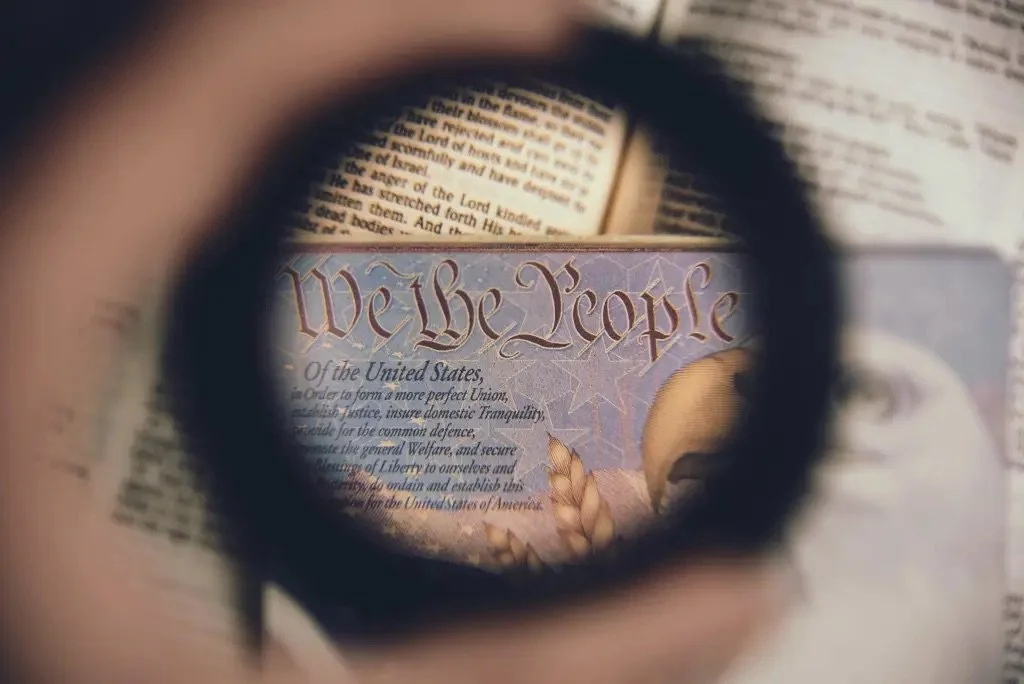Federalists and Anti-Federalists
On September 17, 1787, the Constitutional Convention, after much discussion and deliberation, completed its work. This did not, however, bring an end to debate and controversy. To put itself into effect the Constitution was sent to the states for the process of ratifying the document. Obviously, state ratifying conventions would determine the level of public support for the new government, and thus lay it on the foundation of popular consent; but it also allowed the Constitution’s supporters to bypass the Confederation Congress, even though that seemed legally required.
Article VII is the shortest of the seven articles, but in many ways the most important. The relative simplicity of it belies its significance. “The Ratification of the Conventions of nine States, shall be sufficient for the Establishment of this Constitution between the States so ratifying the Same.” Even this process of ratification highlighted the evolving tension between local governments and the proposed national one, for the local governments were charged with determining how the selection of delegates to the ratifying convention would take place.
Two things to keep in mind: first, the individual states had to determine for themselves the method of ratification; and, second, the document was binding only on the states who had ratified. By implication, if any particular state did not want to be part of the Constitutional system they could not be compelled to do so.
Once the document was in the hands of the state ratifying conventions its opponents went immediately to work, the first published essay attacking the Constitution published a mere ten days after the convention adjourned. These opponents we now refer to collectively as the Anti-Federalists. The name is a bit of a misnomer. First, they didn’t refer to themselves that way. Second, it tends to lump together a large and complex group of writers, many of whom had minimal if any interaction with each other, and treat them as a coherent movement. In fact, there was a lot of variation among them and they never published a collected set of essays such as the Federalist Papers. As a result, it is more difficult to think of Anti-federalism as a coherent and consistent set of political ideas.
Third, the term Anti-federalist intimates they are defined by what they opposed and not by what they affirmed. It is true that they opposed the Constitution, although many of them varied in the intensity of and reasons for their opposition. It would be a mistake simply to see them as contrarians. Underneath their opposition was a serious understanding of the nature and purpose of a political community. Even though every clause of the Constitution was scrutinized and criticized, the main objection was that the new Constitution was giving too much power to the central government. Critics claimed that the underlying feature of the Constitution was the consolidation of the states into one general government. Almost as importantly, a uniquely Federalist claim was the willingness to embrace interest as a legitimate standpoint from which to make principled arguments. Republican thinkers had heretofore regarded virtue and not interest as the animating principle of self-government. These are the main differences that separated Federalists and Anti-federalists.
Discussion Questions:
Are any of the divisions today more consequential than those over whether to adopt the Constitution? What enable the different factions to get along after ratification?
What choices do people have as to how they are going to react after losing a political battle where the stakes are as high as the passions?
Do our passions mislead us into thinking the stakes are higher than they actually are?
How did the process of ratification help people accept the results of the process?
Director of the Ford Leadership Forum, Gerald R. Ford Presidential Foundation
Related Essays





